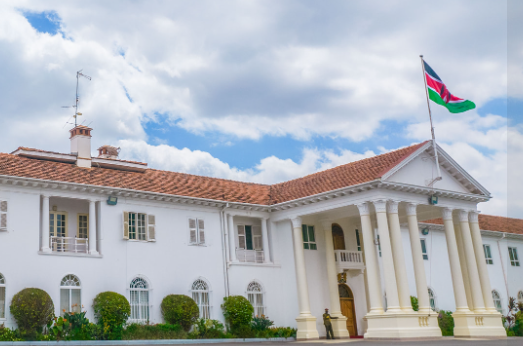State House will hire more consultants just months after President William Ruto pledged austerity measures to reduce government spending.
- The Executive office of the President in State House stated that they needed consultants in macroeconomic policy, public finance, trade, international economics, financial inclusion, labour markets, health economics, agricultural economics, and industrial economics.
- Those interested will be required to have masters degrees or PhDs in economics or law, as well as documentary evidence for at least five assignments they have successfully handled in the past 10 years.
- The current set of State House economic advisors, which comprises of individuals like David Ndii and Henry Rotich, is projected to cost taxpayers more than KSh 1 billion in the current financial year.
“The Executive Office of the President – State House invites eligible individual consultants to express their interest in providing these services,” said the Comptroller of the office, Katoo Ole Metito.
After the collapse of the Finance Bill 2024 in June, through which the government intended to raise more than KSh 300 billion, the budget deficit was projected to rise by 4.6% of the GDP.
In July, President William Ruto announced that the government was planning to cut spending by dissolving 47 state corporations with overlapping roles and slashing the number of government advisors by 50%. The austerity measures were intended to eliminate spending worth KSh 177 billion.
The About Turn
Later that month, the Head of the Public Service Felix Koskei directed Cabinet Secretaries to reduce the number of advisors to one. State House itself was supposed to reduce its budget by almost KSh 5 billion. This meant the termination of the Office of the First Lady, reduction of travel expenses, and the cessation of some supply services.
Two weeks later, State House comptroller Katoo Ole Metito pleaded with parliament to reinstate more than half a billion shillings to the First lady’s office to compensate employees on contract and more than KSh 300 million to cover transportation expenses.
President Ruto then reinstated some of the Cabinet Secretaries he had sacked to his advisory team. These included Former CS for Public Service Moses Kuria and Former CS for ICT Eliud Owalo. It is likely that the new bunch of economic consultants will be individuals allied with the President, consolation spaces for the coalition’s political losers still out in the cold. A new burden for taxpayers amidst the nation’s revenue crunch, economic dislocation, and rising debt burden.
The International Monetary Fund (IMF) warned the Kenyan government against cutting development expenditure, adding that it would impede economic growth and slacker debt management. Development spending accounts for 60% of the unfunded spending carryover from the FY 2023/2024, diminishing the sustainability of key projects. For government, however, cutting recurrent expenditure is a politically unpopular move as it is the biggest spender in the economy.
The Bottom-Up Agenda continues to face immense implementation challenges due to an array of fiscal challenges and citizen distrust. On the campaign trail in 2022, the Kenya Kwanza coalition had promised many programs that are yet to be taken into consideration. Its leaders have called upon Kenyans to be patient, some even suggesting that the constitutional term limits are too short for any meaningful change to be effected.




